
June 2009: Boys playing after a Child Focused Health Education in Sayed Abad Afghani village in Sar-i-Pul province and district in Northern Afghanistan. This is the first session in which the children will learn and discuss about diarrhoea. It is a module in the Child Focused Health Education that will last for a couple of months.

June 2009: A student in the community midwife school in Shiberghan in Jawzjan Province during a practical teaching session. After 18 months of both theoretical and practical training as well as extensive practice in a nearby district hospital the women will become community midwives, assisting women in rural areas all over the province. All the women come from different villages and the requirement to start the education is that they go back to their home village to work as a midwife there once they graduated.
The school has been educating midwives with the support of Save the Children for over five years and is according to both teachers and doctors in supporting hospitals a success. Once graduated the students will provide women with safer conditions for both pregnancy and delivery in rural areas in Afghanistan.

February 2010: From a classroom in Darulhifaz Boys Seminary school in Jalalabad in Eastern Afghanistan. The school is a government run religious school and part of Save the Children's Violence Free School project. The boys study to learn the Koran by heart every morning before lunch and then attend regular classes in the afternoon. The school has 700 students, 150 of them live in the school and have all meals covered by the school. Since it is government run it is free.
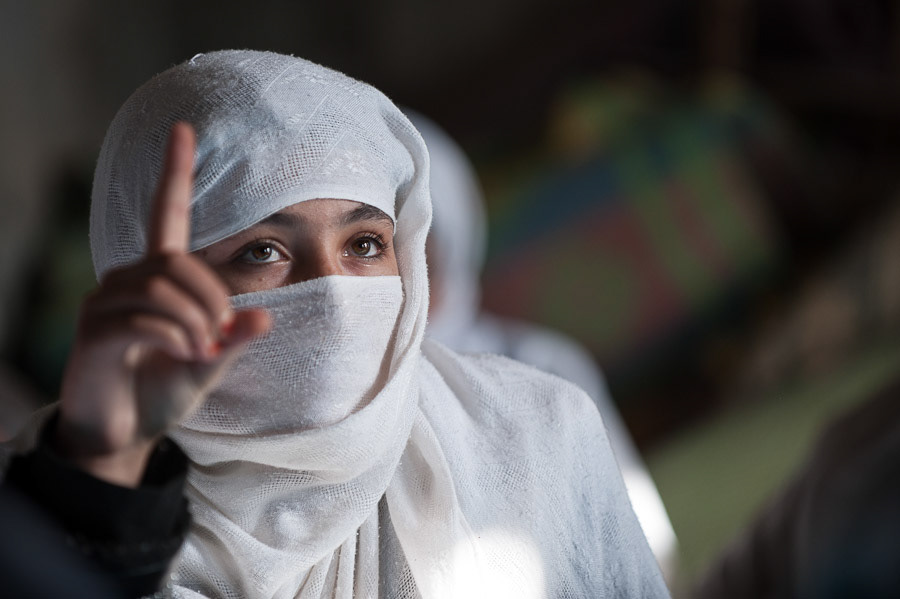
February 2010: A student during class in a community based school in Wush Tangi in Nangarhar province in Eastern Afghanistan. All families in the community are returnees from Pakistan.

May 2010: A man and his child at the district hospital in Aqcha district in Jawzjan province in Northern Afghanistan.
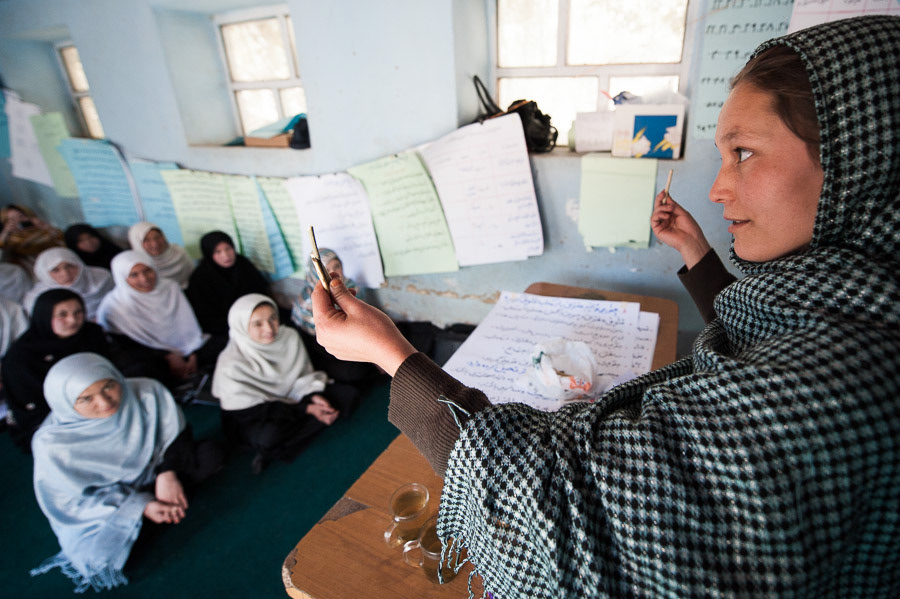
October 2010: Aqela, 19 years old is practicing her teaching skills in front of her fellow students in a classroom in Bamyan Province in Central Afghanistan. She is one of 240 girls that attend a pre-service and in-school teacher training run by Save the Children.

March 2012: Early morning at the Shah-e-Doh Shamshira Mosque in central Kabul, Afghanistan.
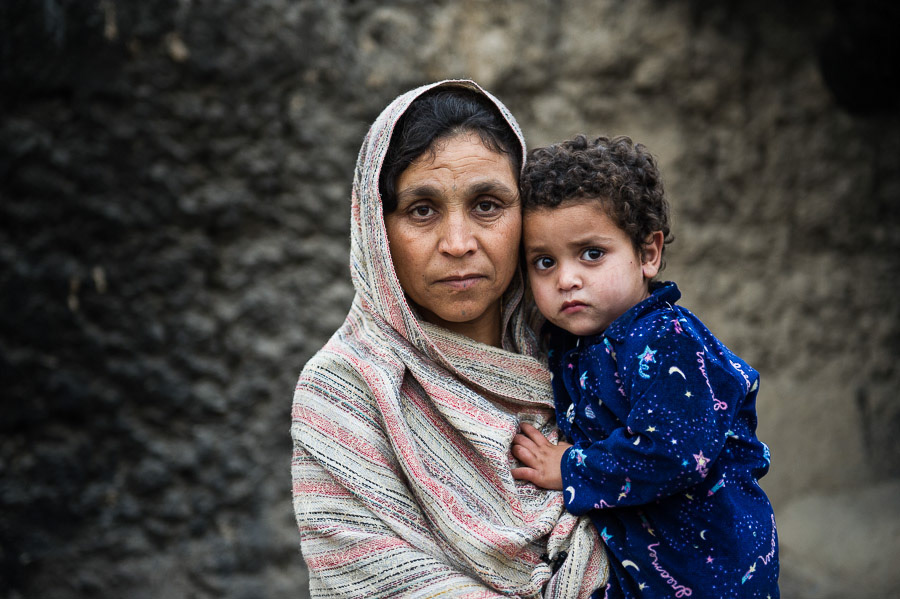
November 2011: Malika has nine children, six daughters and three sons.
- I have twins and they are very weak. I took them to the hospital and they stayed there for one week. The food that the doctors gave to my children was really helpful.
Malika's two youngest children are still malnourished.
- I took my children to the clinic again today, because they are getting weaker. We are poor people and do not have a good income and I can’t give them good food. We only have bread. Sometimes I give them biscuits and they are not happy with that. Since yesterday they are vomiting and have a fever.

April 2012: Doctor Mangal Shinwari, head of one of the mobile health teams in Uruzgan province in Southern Afghanistan, examines a patient.
The village his team is visiting doesn’t have a health facility, resident doctor or midwife. The nearest health facility is one and a half hours walking distance away. A mobile health team offers the possibility of regular medical visits to villages without healthcare.
The teams offer immunisation and curative services for children, women and men along with health education on a regular basis. Each team includes a doctor or nurse, a midwife and a vaccinator, supported by the local community health supervisor and community health workers.

April 2012: Amir Muhammad, 9 years old, is a student in the community based education class in his village in Tirin Kot district in Uruzgan province in Southern Afghanistan.
- I live in the school house, because my father gives one room to us students. I don’t have to walk very far, only around the corner in the morning, so I can help my mother a lot.
- I will always live here in my village. It is the best place of all. I will go to high school, because I am so good at school. But then I come back to my village. I don’t know yet what I will do here, but something good.

May 2012: Gulbina, 50 years old, works on a carpet in her home in a village in Jawzjan province in Northern Afghanistan.
Gulbina receives unconditional cash transfers from Save the Children due to her difficult economical situation in the wake of recent draught in the area. She has two children with disabilites, Rasol, 18 years old, in the background.

September 2008: Math class at a school for hearing impaired children in Kabul. The centre was for a long time the only one in Afghanistan and they had to invent an Afghan sign language. The school is run with the support of Save the Children.
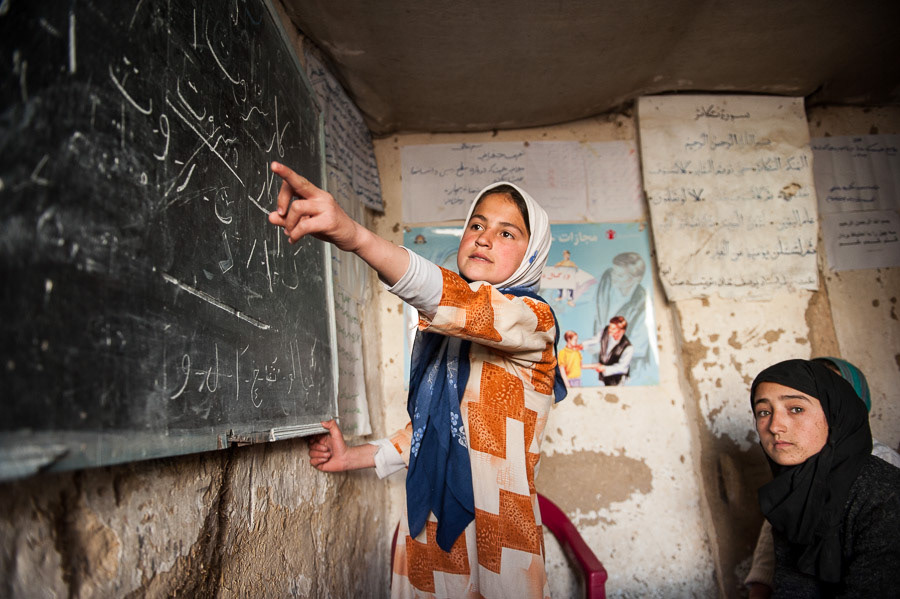
January 2009: From a classroom in a school for street working children in Fayzabad in Badakhshan Province in North Eastern Afghanistan during winter. Many families are poor and send their children to work instead of school. This center is a way for the children to learn after or before work.
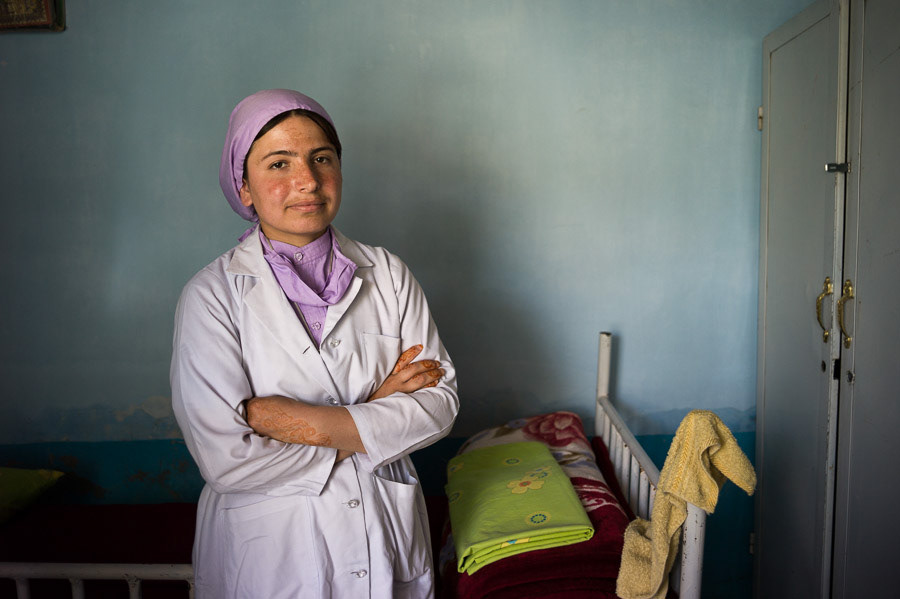
May 2012: Nilofar, 22 years old, is one of 26 midwife students currently in the Save the Children Community Midwife School in Shiberghan in Jawzjan province in Northern Afghanistan.
Eight years ago there were less than 10 midwives in the whole province of 300,000 people. Now there are more than 100 midwives thanks to the school.
- I had to struggle to get permission to study here, but now, since the people in the village see what I have learned and how my knowledge can help, they are happy with me becoming the first midwife in the village.

